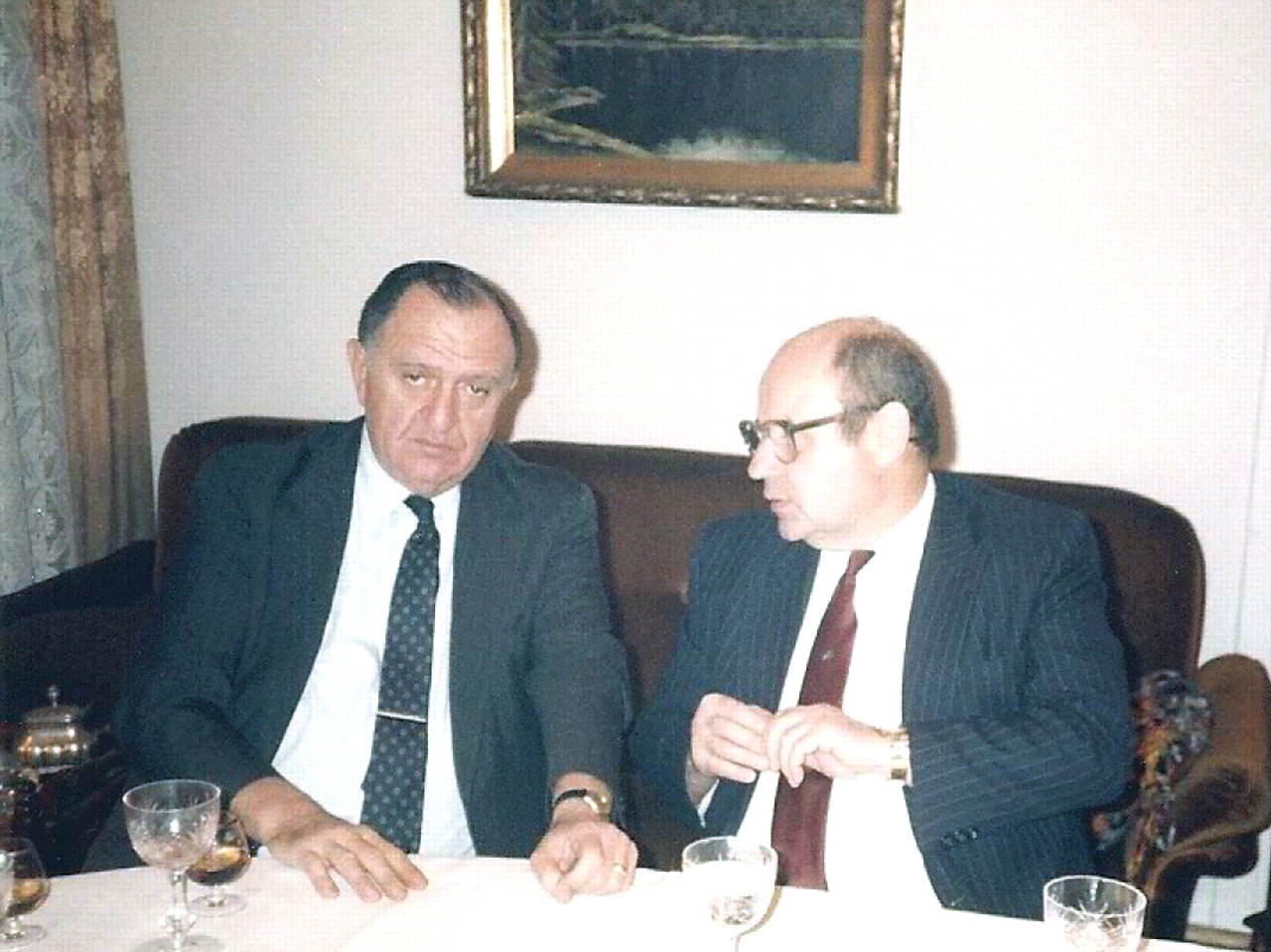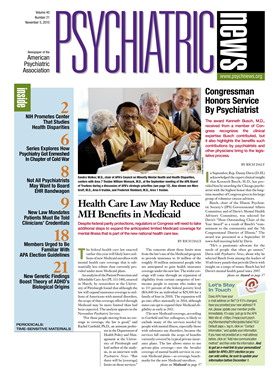For Melvin Sabshin, M.D., APA medical director from 1974 to 1997, the confrontation with Soviet psychiatry around abuses of the profession to detain political prisoners—though only one episode in his storied APA career—was defining: it involved the assertion of an empirical, evidence-based psychiatric practice over ideology, a triumph that Sabshin believes is his most lasting contribution to American psychiatry and is recounted in his 2008 book, Changing American Psychiatry (published by APPI).
Early in his career Sabshin was exposed to state-sanctioned injustices and to the corruptibility of ideology that made a lasting impression and would help to inform his leadership at APA and in the confrontation with the Soviets.
A prodigy, Sabshin graduated from high school at age 14 and from college at 17. After a stint in the Army, he attended Tulane University School of Medicine and completed his psychiatry residency in New Orleans. Sabshin recalled his vivid distaste for the racial segregation then prevalent in the city's Charity Hospital, where he worked, and he led a fight while a resident to desegregate the facility.
Like many intellectuals of his time, Sabshin was drawn as a youth to socialist ideology and was briefly, in his late teens and early 20s, a Marxist. That association would later lead to some inquisitive visits from FBI agents and members of the House Committee on Un-American Activities. Though he was never called to testify, he was deeply affected by the pressure placed on Tulane to oust a member of the faculty because of allegations about a Communist past and trumped-up charges about the faculty member's competence.
In time, Sabshin renounced Marxism, influenced by the classic Cold War novel Darkness at Noon and the realities of Soviet terror. Much later during visits to the Soviet Union as medical director of APA, Sabshin—whose parents had fled the antisemitism of Tsarist Russia—was dismayed by what he saw as the open anti-semitism in Soviet psychiatric circles.
Coming to the leadership of APA, Sabshin was most concerned about schisms in American psychiatry whereby—in the words of APA Medical Director James H. Scully, M.D., in a foreword to Sabshin's book—“ideological assertions took precedence over evidence-based practice, and patient care depended more on the psychiatrist's theoretical orientation than on a reliable system of diagnosis and treatment.”
It was that concern, as well as Sabshin's insistence that APA needed an international presence, that made him a natural leader in the confrontation with Soviet psychiatry. The development of a more rigorously scientific nosology, greatly accelerated during Sabshin's leadership, made effective confrontation with the Soviets possible and hastened the end of the most blatant state-sanctioned abuses.
“The abuse of psychiatry by the Communist regime was a result of the weak empirical base of psychiatry that left it open to ideological manipulation and a theory of diagnosis that was ideological rather than empirical,” Sabshin told
Psychiatric News in an interview from his home in London. “The end of this forceful ideological abuse of psychiatry by the state was an enormous victory for the field.”


